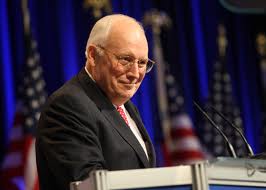Jack Garner, a Texan whom Franklin Delano Roosevelt chose as his first vice president for “balance,” put it succinctly: The vice presidency was “not worth a bucket of warm p–” (later cleaned up to “spit”).
But Garner, ironically enough, helped block FDR’s power grab when that most charismatic of presidents tried to “pack” the Supreme Court in 1937. The court — rather ineffectually — had tried to turn back the 20th century’s seemingly inevitable cascade toward “big government.” FDR, in retribution, sent Garner off into obscurity, substituting left-wing populist Henry Wallace on the ticket, whom he later dumped for that product of the Prendergast Big City Machine product, Harry S. Truman. Truman surprised everyone with his competence and integrity, and the rest, as they say, is history.

The vice presidency has always presented a conundrum — even for the genii among the Founding Fathers. In their wisdom, they sought to avoid stalemate and provincialism in the Electoral College. (There was little thought of the popular will in the secret convention that hot Philadelphia summer of 1787.) By assigning two votes to each elector — and requiring one vote to be cast for a candidate outside the elector’s own state — they hoped to ensure a limited, emphatic contest. It seemed “natural” that the president’s stand-in should be the runner-up he defeated. But that didn’t work out. And by 1804, a Constitutional amendment was drafted that mandated electing a vice president in his own right.
But it takes a constitutional historian to search out significant vice presidents — among those who did not go on to be president. Only occasionally does their tie-breaking vote as the Senate’s presiding officer count. Yet having a credible standby for the country’s most important job is essential.
A familiar pundits’ cliche, but one that is probably true, holds that vice-presidential candidates are largely inconsequential in deciding elections.
But when George W. Bush pulled a rabbit out of the hat and nominated Dick Cheney — after asking him to help make the choice — he laid down a marker. It was hardly noted. Although Mr. Cheney, a veteran of a half-dozen federal jobs as well as a former legislator, was a highly experienced politician, no one, given his age, his health and his lack of ambition, saw him as they had recent Republican vice presidents as future candidates.
What Mr. Cheney became, perhaps with no precedent, was an “assistant president” — at least for the better part of the first and most of the second Bush II terms. From the kiss-and-tell literature, we know that Mr. Cheney was intimately involved in all key decision-making — often offering strong opposition to other advisers and perhaps even to Mr. Bush’s own inclinations, especially toward the end as the administration shredded.
One had hopes that the Cheney model was a new pattern for the American chief executive, for modern life as well as the Constitution have made the presidency unconscionably demanding.
A president combines many roles that are separated in other countries by law or custom. He is chief executive, the leading bureaucrat commanding a continuously growing regulatory staff of more than 3 million. He is commander in chief of the world’s most powerful military force, with almost 1.5 million men in arms. In protocol, he incarnates the nation in foreign relations but especially at its most critical domestic moments. And he is, not least, the leader of his political party in its contest for electoral power.
Until all the memoirs by stars of the first, and perhaps the second, Obama administration are written, we won’t know what role Vice President Joe Biden actually played. Even leaving aside his propensity for gaffes and including his purported expertise in foreign affairs, it seems unlikely he has served as Mr. Obama’s “assistant president.”
Nor, until the dust has settled from this year’s election, will we know whether “the Cheney model” is ever to be repeated. But whatever other political criteria were involved in Mitt Romney’s choice, it is clear that Rep. Paul Ryan again suggests the possibility of an “assistant president.”
Mr. Ryan, even discounting chatter about his “wonkish” cleverness, fits the bill of knowing how to handle the excruciating, endless detail the presidency poses — particularly in a time of economic crisis. Were Mr. Romney the astute business executive he claims to be, Mr. Ryan could, indeed, re-inaugurate the “assistant president” concept. The thought is worth considering.
Sol W. Sanders, ([email protected]), writes the ‘Follow the Money’ column for The Washington Times on the convergence of international politics, business and economics. He is also a contributing editor for WorldTribune.com and East-Asia-Intel.com.

